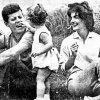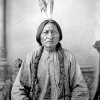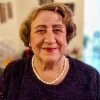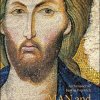Амерички хероји, суперхероји и антихероји, теме су предавања која ће се одржати у оквиру радионица на Филозофском факултету у Београду
Четврта „Недеља америчке културе и друштва”, у организацији Центра за америчке студије, Филозофског факултета у Београду, одржава се од данас до 2. априлa 2022. године.‒ На овој радионици, професори Одељења за историју, социологију, историју уметности, етнологију, антропологију и психологију, одржаће низ предавања о америчким херојима, суперхеројима и антихеројима, кроз које ће дати увид у ширу слику америчке историје, културе и друштва. Иако је радионица превасходно намењена студентима Филозофског факултета, отворена је и за све заинтересоване за културну и друштвену историју САД ‒ каже Симона Чупић, професорка на катедри за историју уметности Филозофског факултета у Београду.
Анализирајући различите историјске личности, али и имагинарне јунаке, трага се за одговорима ко су хероји, како се постаје а како престаје да буде херој и зашто је кроз ове приче могуће пратити начин на који се мења, развија и дефинише америчко друштво. Томас Џеферсон, Бик Који Седи, познати и анонимни хероји борбе за грађанска права, хероји еколошке борбе, Скарлет О’Хара, Блејд и Капетан Америка, као и многобројни Марвелови јунаци, садржаји су који нуде одговоре на питања о расној и родној равноправности, активизму, уметности и популарној култури.Професока Чупић истиче да је свима њима заједничка Америка, али су разлике бројне, разнородне, често тешке. И управо из тих различитости ми схватамо колико је много различитих „херојских” прича.
‒ Другим речима, постаје сасвим јасно да не постоји једна Америка, као и да се сваки покушај стварања неке јединствене слике заправо темељи у стереотипу, недовољном знању и предрасудама. Идеја „Недеље америчке културе” је управо у скретању пажње на те различитости, у дијалогу који води истинском разумевању Америке, од ККК (Кју Клукс клан) преко покрета за грађанска права до БЛМ (Black Lives Matter), од америчког сна до атентата на Кенедија, од предграђа до прерије, од Мекдоналдса до Насе, од каубоја до Берклија. Изучавање и деконструисање непоузданог и популарног „знања” важно је за наше студенте као модел промишљања друштвених феномена. Како у Америци тако и изван ње ‒ наглашава Симона Чупић.За крај је предвиђена и посета Југословенској кинетоци у оквиру програма „У потрази за америчким наслеђем”.
Извор: Политика








